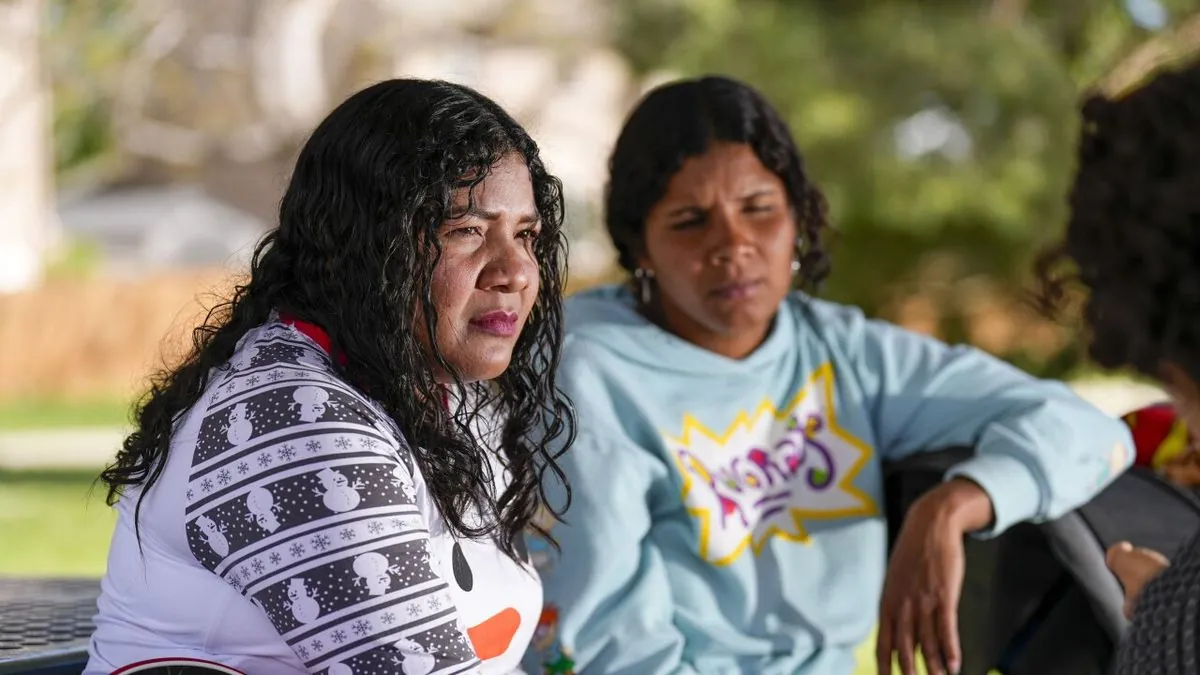In recent years, the United States has witnessed a significant increase in South American migration, with nearly 900,000 women and girls attempting to cross the southern border in 2023 alone. This represents a fivefold increase over the past decade, according to U.S. Customs and Border Protection data. Among these migrants is Sofia Roca, a 49-year-old Colombian immigrant whose journey illustrates the challenges faced by many newcomers.
Roca arrived in Denver in November 2023, part of the more than 42,000 migrants who have come to the area over two years. Like many others, she was drawn to Aurora, Colorado's third-largest city, by its lower living costs and Spanish-speaking population. However, finding employment proved to be a daunting task.
East Colfax Avenue, a major thoroughfare in the Denver metropolitan area, became Roca's primary job-hunting ground. Despite its reputation for potential employment opportunities, the area is also known for illegal activities. Roca faced discrimination due to her Colombian accent, with one restaurant worker dismissing her application upon hearing she wasn't Mexican.
The influx of migrants has created tension within Aurora's established Mexican community. Many long-term residents, some of whom have lived in the U.S. without legal work authorization, resent the benefits and temporary work visas granted to recent arrivals. This resentment has extended to City Hall, with officials warning against housing migrants and spreading unsubstantiated claims about gang activity.
Roca's search for work led her to Kentucky, where she encountered potential exploitation in the sex industry. Refusing to compromise her dignity, she returned to Aurora, only to face continued challenges and solicitations on East Colfax Avenue.
"This street — it only offers prostitution."
The term "ficheras," originating in Mexico, describes women who work in bars and cantinas, often at risk of sex trafficking. Roca narrowly avoided this fate, recognizing the dangers associated with such work.
Facing limited options for legal residency and employment, Roca decided to leave Aurora. With the help of a friend and financial assistance from the city of Denver, she relocated to a northeastern U.S. city. There, she found work cleaning hotel rooms, one of the most common entry-level jobs for immigrants in the U.S.
Roca's story highlights the complex challenges faced by South American migrants in the United States. Language barriers, discrimination, and the risk of exploitation are common obstacles. However, her perseverance led her to a more stable situation, demonstrating the resilience of many immigrants seeking a better life.
As the U.S. continues to grapple with its long history of immigration, stories like Roca's underscore the need for comprehensive immigration reform and support systems for newcomers. The experiences of migrants in cities like Aurora serve as a microcosm of the broader national debate on immigration policy and its impact on communities across the country.
